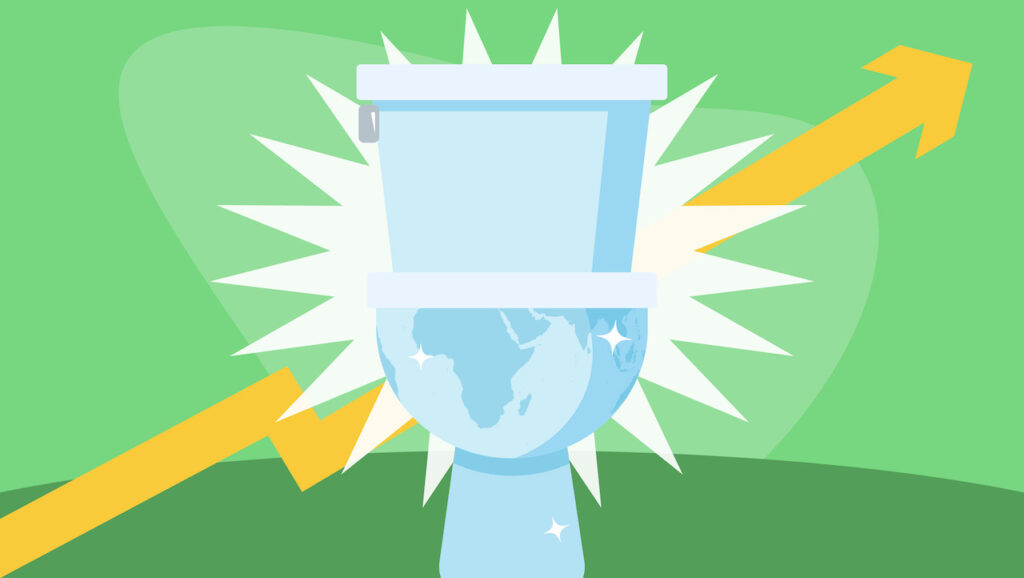Blogs
How Sanitation Affects Your Community
You’ve probably heard more about the importance of washing your hands in these last three years than you have in your entire life. The pandemic put community sanitation (and sanitation in general) front and center, and even if the obsession with hand washing felt like a bit much to you, it’s a hygiene practice that saves millions of lives.
And COVID-19 wasn’t the first time hand washing was controversial—in the 1870s, doctors realized pathogens were being passed through improper hand washing but had a hard time convincing their peers of the benefits. We know now that proper sanitation practices protect us from diseases like foodborne illnesses, diphtheria, cholera, typhoid fever, and more.
But even though we know how important it is to keep clean, almost 1 million people are dying from poor sanitation everywhere. What gives?
So, Why Don’t People Just … Wash Their Hands?
If you were never told that dirty hands lead to food poisoning, would you think to wash them? Everyone hopes the answer would be yes, but think about all the other good “common sense” things you’ve learned that you likely take for granted now, like changing your car’s oil or not pouring grease down the kitchen sink.
Even if you know you should wash your hands, what if you had to walk for 35 minutes just to access water? And what if that water is contaminated—almost black in color—because your whole community goes to the bathroom in the nearby fields? That’s a crappy situation, isn’t it?

Here are some of the largest contributors to poor community sanitation:
Bad Infrastructure
The most common cause of inadequate sanitation is poor infrastructure. This might mean a lack of running water or unresponsive and corrupt local governments that don’t provide regular trash collection services. Poor infrastructure also contributes to weather-related issues like floods and landslides, which can further contaminate drinking water.
Lack of Education and Resources
In many communities, especially remotely located ones, there is a lack of education and awareness about the importance of sanitation. People may not understand the consequences of poor hygiene habits or simply don’t have the means to practice them effectively, which leads to open defecation.
Cost-Effectiveness and Cultural Norms
Including sanitation in a country’s budget isn’t always seen as cost-effective, especially when they’re dealing with things like civil war, food shortages, and poverty. On top of that, many cultural norms and practices don’t favor improved hygiene—like open defecation or the reuse of sanitary products.
How Poor Community Sanitation Impacts Everyone, Even Those With Clean Water
The most obvious consequence is bad health. The World Health Organization estimates that about 829,000 people die every year because of inadequate sanitation. Better community sanitation could prevent the annual deaths of almost 300,000 children under the age of 5.
The loss of people is devastating and with their loss of life comes a decrease in creativity, innovation, and growth. Poor sanitation leads to economic losses. Industries and tourism suffer from health scares brought on by unsafe water or poor hygiene practices. Fewer people going to school and learning trades mean lower economic output.
The WHO found that for every dollar invested in global sanitation, there was a $5.50 return due to lower health costs and increased productivity. 5.5% returns aren’t too bad, right? Especially when the result could be almost 1 million saved lives.
Give a You-Know-What and Help ZuLoo Build Toilets
By improving access to water, sanitation, and hygiene practices, you’re saving lives and helping people live healthier and more productive lives. That’s why ZuLoo is committed to building toilets for the 2.3 billion who don’t have access to safely managed sanitation.
Whether you donate to our 242 program or educate yourself through our Pōōdcast, you’re helping us build more toilets and improve the lives of people living in poverty. Join the movement today and help put an end to poor community sanitation.

